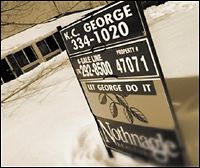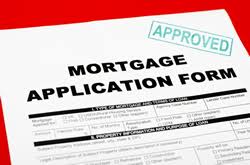
Questions a New Homebuyers Should Ask
Loan Estimate and Closing Cost Disclosure
 Understanding
the ins and outs of purchasing a home.
Understanding
the ins and outs of purchasing a home.
There are many moving parts to buying a home and here we giving you some basic information before you start the process. Their a many different people involved in the process and you should be aware of what service they perform and how they are paid.
Who Gets Paid in a Real Estate Transaction
These will include the real estate agents, the appraiser, the title company, the surveyor, the home inspector, the mortgage lender, and homeowner insurance agents. All of these people get paid by you except for the seller's real estate agent who gets paid by the seller from the proceeds of the sale. If you, as a buyer, have engaged a real estate agent, that agent will be paid by sharing the commission with the selling agent.
Commissions and Fees
Several of the people involved in real estate are paid a flat fee and the others are paid commissions. Commissioned people include the real estate agents, loan officer, the title company, and insurance agents who only get paid when the loan closes. Those getting paid a flat fee get paid when they perform the work regardless of whether the loan closes. These include the appraiser and the home inspector.
Note: Recent court decisions have called into question the amount of commissions that real estate agents charge. Since these commissions can be a considerable amount of money that affect the price of real estate, homebuyers should keep attuned to developing news regarding this important part of real estate purchases. Although you do not pay the real estate commission as a buyer, many times the seller has considered it when setting the price.
Business Transaction
Since you are going to be paying all these fees, not to mention the loan fees, it is in your best interest to know as much as you can about each service and required payment as you can. Remember, this is a business transaction and your objective is to keep as much of your money as you can. The objective of each of these vendors involved in the loan process is to get as much of your money as they can. They are not your friends, they are ruthless business people so knowledge is your best defense.
Loan Estimate and Closing Cost Disclosure
More Detailed Mortgage Loan Disclosures for Better Information
 The
Loan Estimate and Closing Cost Disclosure has been revised to a standardized document that
must be used by all lenders.
The
Loan Estimate and Closing Cost Disclosure has been revised to a standardized document that
must be used by all lenders.
This Loan Estimate gives you an estimate of your settlement charges and loan terms if you are approved for a mortgage loan.
You can visit the Consumer Finance Protection Bureau web page for a complete explanation of the Loan Estimate document.
Take you time understanding the numbers as you can save thousands of dollars in payments by choosing the best loan for you.
What's on the Form
The loan's main features are clearly stated in plain language. The disclosure includes the amount of the loan, the term of the loan, initial interest rate and total monthly payment. And it's hard to miss many of the potentially troublesome loan terms that tripped up many borrowers who are in trouble today. Can your interest rates rise? Even if you make payments on time, can your loan balance rise? Can your monthly payment rise? All these questions are answered on the first page.
Shopping for a Loan
Only you can shop for the best loan for you. Contact at least three lenders. The most efficient way to do this is by going to a website such as Lending Tree. This company will show your loan application to several lenders and present their offers to you. You can pick the one the one that best suits you including how fast they can close your loan and how long they will lock your interest rate before closing.
You also have a better chance for a loan approval when you are applying to several lenders at once.
Compare each lender's Loan Estimate and Closing Cost Details that you receive from each of these lenders so you can find the best loan. Compare all the offers you receive. When comparing these loan offers, you should focus on the overall costs (including the interest rate plus your adjusted origination charges which make up a number called the Annual Percentage Rate or APR.)
The origination charges cannot change at closing. And once you have locked in your interest rate, your points and adjusted origination charges can't change either.
At the closing table, it will probably be easier to compare the estimated costs with the actual charges listed on what's known as the Closing Disclosure form, which now includes a reference to each corresponding fee on the estimate. The Department of Housing and Urban Development's Settlement Cost Booklet provides a line-by-line breakdown of both forms.
Mortgage Loan Escrow Account
What is an Escrow Account?
One of the surprises that many mortgage borrowers find in the closing costs is the setup of an escrow account and funding it with two months of prepaid escrow. Just what is an escrow account?
Mortgage loan escrow accounts are pivotal components in the home buying process, ensuring that homeowners consistently meet their property tax and insurance obligations without the stress of large lump-sum payments.
- What is a Mortgage Escrow Account? A mortgage escrow account is a special account managed by your mortgage lender or servicer that holds funds for paying property taxes, homeowners insurance, and possibly private mortgage insurance (PMI) if required. Each month, a portion of your mortgage payment is deposited into this account, which the lender uses to pay your taxes and insurance premiums on your behalf when they’re due.
- How Does it Work? When you take out a mortgage, the lender typically sets up an escrow account to manage the taxes and insurance part of your home expenses. The amount you pay into escrow is calculated based on the annual costs of your taxes and insurance. Your lender will divide this total by 12 to determine your monthly escrow payment. This ensures that you’re not caught off-guard by hefty annual bills, and it helps the lender safeguard their investment in your property.
-Benefits of an Escrow Account: The primary benefit of an escrow account is convenience. Instead of having to remember to pay large bills once or twice a year, you make smaller, manageable payments each month. Moreover, since the lender is responsible for making the tax and insurance payments, there’s no risk of forgetting to pay these crucial bills, which could result in penalties or even a lien on your home.
- Potential Drawbacks: While escrow accounts offer convenience, they also mean that you’re entrusting your lender with overpayments until your bills are due. Additionally, if your tax or insurance costs increase, your monthly mortgage payment will also rise to cover the shortfall in your escrow account.
In summary, mortgage loan escrow accounts play a critical role in the home buying and ownership process, offering a streamlined way to manage significant housing-related expenses. They provide peace of mind by ensuring that critical payments are made on time, but they also require homeowners to place a significant amount of trust in their lenders.
Questions? Comments? Advertise? Email the Webmaster at Americas Shows
Copyright 2009-2024, Americas Shows. All rights reserved. Site Index